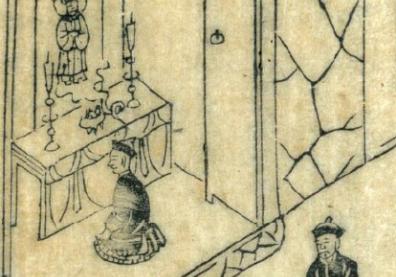Reframing Quanjie lu (Record of exhortations and admonitions) for Buddhist Audiences in the Late Qing and Early Republican Period

Abstract: In this talk, I share reflections from my new research project on Quanjie lu (Record of exhortations and admonitions). Quanjie lu, a biji collection originally produced during the crisis decades of the mid-to-late nineteenth century, experienced a surge of interest among Buddhists during the chaotic decades of the early twentieth century and remains in print to this day. The first installment came together in 1843 when its editor/compiler, Liang Gongchen (1814-1887), was thirty sui and spending a summer at home with his father, the eminent statesman Liang Zhangju (1775-1849). By the time its tenth installment was published in 1888, Liang had assembled over 1300 morality tales to serve his stated aim of repairing and re-moralizing society. Liang’s work attracted considerable encouragement and support at every stage of the process, with reprints of the early installments appearing even as the collection continued to grow.
Here, I explore the reception history of Liang’s collection in three phases of its transmission, focusing on how it was reframed and reshaped to serve as a Buddhist morality text. Though in their prefaces Liang and his father both focused on his work’s connection to the aims of Confucian social reform, those further removed from the work’s original context saw different potential in the same tales. By first examining prefaces by late Qing writers that employ Buddhist imagery to describe their understanding of the work, we see the roots of the second phase of its transmission, when in 1921 prolific Buddhist publisher Ding Fubao (1874-1952) produced a heavily edited anthology version and advertised it as a “Foxue rumen shu” (Introductory work of Buddhology). Lastly, I will address a mid 1930s serial reprint of all ten installments published in Tianjin, which featured prefaces and calligraphy from a group that included many who had high positions in the Beiyang government (1912-1928). Many of these warlords and their colleagues also became devout Buddhists in their retirement, and their interest in Quanjie lu bears further examination.
Short bio: Katherine Alexander is associate professor of Chinese in the Department of Asian Languages and Civilizations at the University of Colorado, Boulder. She received her PhD from the University of Chicago in 2016. Her research focuses on the intersection of literature and religion in the Qing, especially popular morality literature. Her first book, Teaching and Transformation in Popular Confucian Literature of the Late Qing was published in August with University of Michigan Press and is available online as an open-access publication.
Organizers:
Daniela CAMPO View e-mail
Antoine CID View e-mail